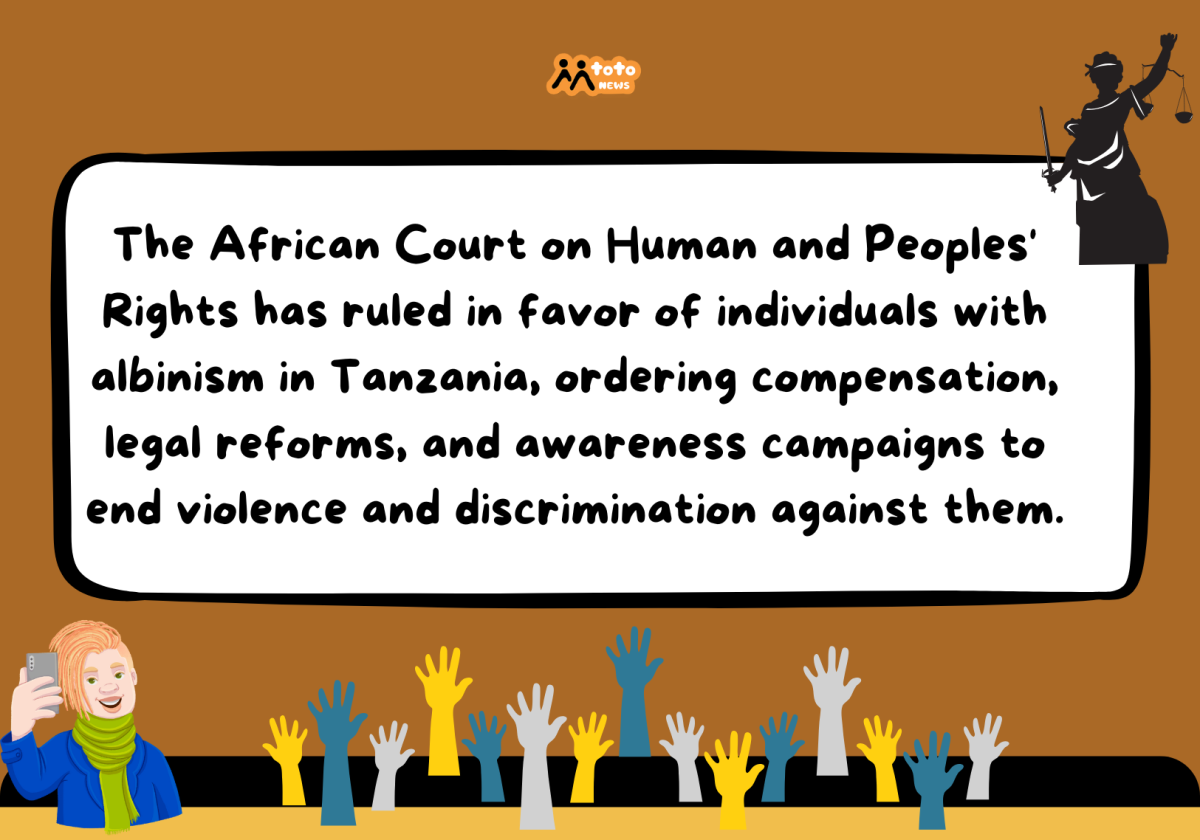Written by Alice Njoki.
On February 5, 2025, the African Court on Human and Peoples’ Rights made a decision in favor of people with albinism in Tanzania, including men, women, and children. This ruling addresses the long-standing violence and discrimination they have faced due to harmful cultural beliefs.
People with albinism in Tanzania have been attacked, kidnapped, and even killed because of myths that their body parts can bring wealth or cure diseases like HIV/AIDS. For example, some believe that having sex with women with albinism can cure HIV/AIDS, while children are often kidnapped because they are seen as cursed or magical. These false ideas have caused widespread violence and discrimination.
The African Court found that Tanzania had violated human rights by failing to protect the lives, dignity, and freedom of people with albinism. It also said that Tanzania had not provided adequate healthcare and education for them.
To fix these problems, the court ordered several things:
- Compensation Fund: A fund of ten million Tanzanian shillings should be set up to compensate victims.
- Legal Reform: Laws should be changed so that violence against people with albinism is treated as a serious crime.
- Witchcraft Act Revision: The Witchcraft Act of 1928 should be revised to make it clear what is considered witchcraft and what is part of traditional health practices.
- National Action Plan: Tanzania should create a national plan to stop attacks on people with albinism, in line with the African Union’s goals.
- Education and Healthcare Rights: Ensure that people with albinism can get quality education and healthcare that meets international standards.
- Awareness Campaigns: Start campaigns across Tanzania for two years to clear up myths about albinism.
The court also called for improved safety for children with albinism, better access to mental health support, and efforts to reduce overcrowding in shelters, aiming to reunite families affected by these crimes.
This ruling is an important example for the rest of Africa on how to protect vulnerable people from harmful cultural practices. Lawyers and human rights organizations have praised the court’s decision, as it gives hope for change and justice for people with albinism.
By standing against injustice, whether it’s due to health conditions or simply because someone looks different, we can create societies where everyone feels valued and no one suffers because of their appearance or who they are.

